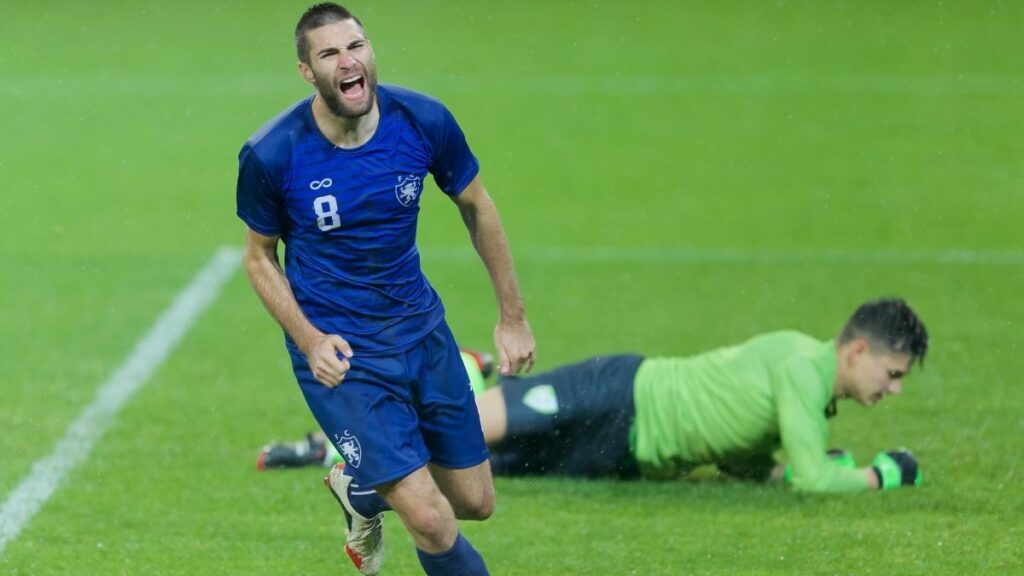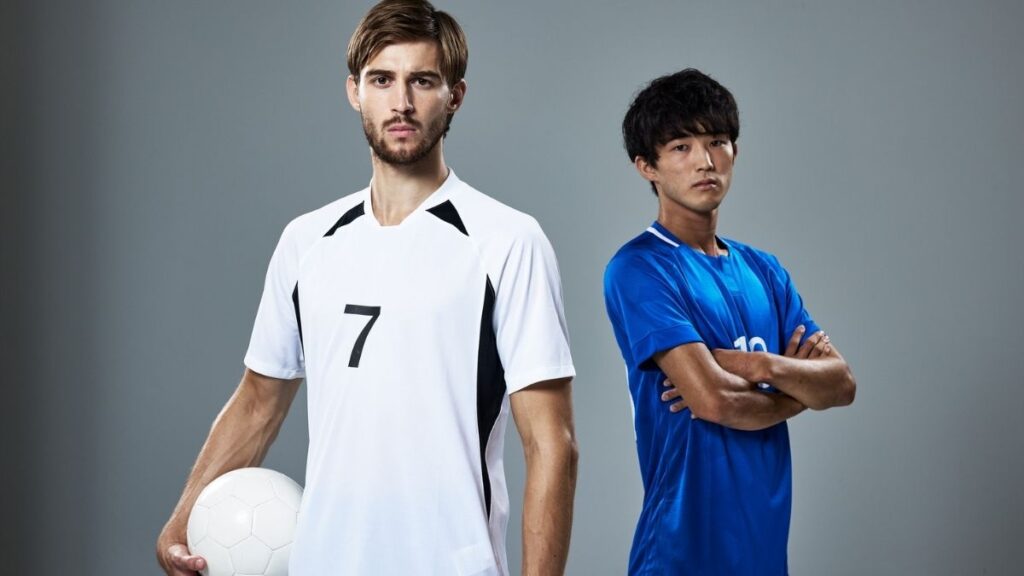Boost your betting experience and get up to $200 bonus right now!
The Netherlands women’s national team is charging forward in their quest to secure a spot at the Euro 2025 European Championships, set to take place in Switzerland. Drawn against Italy, Norway, and Finland in a group that demands both skill and resilience, the Dutch squad faces a campaign filled with opportunities and challenges. With ambitions heightened after a turbulent patch that included missing the Paris Olympics, the Leeuwinnen are determined to rediscover their winning form and add another prestigious trophy to their collection. The journey to Euro 2025 isn’t just about qualification—it’s about reclaiming pride, showcasing rising talent, and energizing a nation that breathes football through its ties with legends like Johan Cruyff and globally recognized partners such as Nike, Puma, and Adidas. As UEFA’s tournament edges closer, the KNVB’s strategies, the players’ performances, and the backing of sponsors like Heineken and ING are all converging to create a narrative brimming with passion and hope.
Sommaire
ToggleDecoding the Netherlands’ Euro 2025 Qualification Group: Italy, Norway, and Finland
The qualification stage for the Euro 2025 women’s tournament has placed the Netherlands alongside Italy, Norway, and Finland in Group A, a lineup that carries its own strategic subtleties. Each team poses a unique set of challenges that requires illumination beyond the surface-level scorelines and stats.
Group Dynamics and Qualification Routes
The group’s format is straightforward: the top two teams earn automatic qualification to the European Championships in Switzerland. However, don’t overlook the chance of qualifying through the playoffs, which remain open for the third-placed team as well. That safety net adds layers of tactical options for the Dutch, managed by Andries Jonker. He faces the tough but manageable prospect of navigating a group that excludes powerhouses like England or Sweden, who feature in other groups and could otherwise have complicated the path.
Opponents Breakdown: Tactical and Historical Contexts
- Italy: The Italians have shown resilience and tactical discipline, exemplified by their surprising victory over World Champions Spain during qualification, which illustrates their ability to punch above their weight.
- Norway: Always a team not to be underestimated, Norway carries World Cup pedigree and physical prowess. Their aggressive style, exemplified in the 1-1 draw against the Netherlands, makes matches at venues like Bergen intense battles.
- Finland: The Finns represent a strong defensive setup, often relying on tight structures and counterattacks. Their draw with the Dutch shows they can challenge elite teams.
Preparation for such matches involves meticulous scouting and mental readiness, where partnerships with sponsors like Puma and training programs facilitated by the Johan Cruyff Foundation help optimize player health and technique.
Key Fixtures and Scheduling Insights
The Netherlands begin their qualifying campaign in upcoming fixtures set for March 2024, with matchdays spread until July. Although exact dates are pending, the campaign’s rhythm will test the squad’s endurance and adaptability, demanding peak condition amidst domestic club commitments.
| Matchday | Opponent | Location | Significance |
|---|---|---|---|
| March 2024 | Italy | Home | Set a strong tone for campaign |
| April 2024 | Norway | Away | Crucial direct competitor clash |
| June 2024 | Finland | Home | Opportunity to clinch points |
| July 2024 | Italy | Away | Decisive final group stage |
Consistency will be crucial, as the pressure mounts with every fixture. The importance of mental strength in clutch moments cannot be overstressed, especially with the prospect of facing teams who balance between survival and ambition.

Legacy, Pressure, and the Hunt for Glory: Netherlands’ Historical Context and Squad Aspirations
The Netherlands women’s team has consistently been a European powerhouse since their entry into the Championships in 2009, with their crowning moment arriving in 2017 when they clinched the title on home soil. That victory enriched an already proud lineage that ties back to the influence of Johan Cruyff—a legend whose foundation emblemizes the development philosophy underpinning Dutch football’s success and style.
From Triumph to Challenge: The Recent Past
The Leeuwinnen needed to shrug off disappointment after their 2022 European Championship exit at the hands of France and an ill-fated UEFA Nations League run that cost them the chance to compete in the 2024 Paris Olympics. This combination of setbacks placed significant pressure on the squad and coaching staff, kick-starting a period of tactical introspection and rebuilding.
Key players like the 28-year-old top scorer, who netted 17 goals in the latest league season, carry the mantle of scoring responsibility and leadership. These personal stories energize the squad, weaving narratives of redemption and national pride that make every match a battle not just for points but for heritage and honor.
The Role of Infrastructure and Support Systems
- KNVB’s role: The Royal Dutch Football Association remains pivotal in nurturing talent from grassroots to elite levels.
- Corporate partnerships: Brand giants including Nike, Adidas, and Heineken provide financial muscle and marketing platforms, enhancing visibility and sustainability of the women’s game.
- Community impact: The Johan Cruyff Foundation helps to engage local communities, using football as a tool to promote health, education, and social integration.
Together, these facets underpin a holistic approach that pushes the Dutch team not only to qualify for Euro 2025 but to reclaim their stature as Europe’s elite.
Strategic Play and Tactical Evolution in the Road to Euro 2025
Football is morphing rapidly, and the Netherlands are adapting brilliantly under the stewardship of Andries Jonker. His approach blends tactical discipline, fluid offensive transitions, and robust defensive organization, drawing from lessons learned in recent campaigns and innovations seen across global football.
Formations, Roles, and Player Impact
The preferred setup oscillates around a dynamic 4-3-3 formation, emphasizing wide attacking play and midfield control. This allows creative players the freedom to influence the game, while defensive midfielders shield the backline. Players have been groomed to understand multiple roles—offering tactical flexibility against different opponents.
- Wing forwards contribute high pressing and quick counter-attacks
- Midfielders specialize in facilitating transitions and breaking up opposition attacks
- Central defenders bring leadership, aerial dominance, and ball-playing abilities
Technology and Analysis in Modern Preparations
The Dutch coaching setup employs cutting-edge tools ranging from video analytics to bespoke fitness tracking systems backed by partnerships with sports brands like Puma and Adidas. Data gathered shape game plans and individual conditioning, ensuring players peak at critical qualification matches.
| Aspect | Implementation | Impact on Euro 2025 Campaign |
|---|---|---|
| Video Analysis | Detailed breakdown of opponents’ tactics | Enhanced tactical preparedness and counter-strategy |
| Fitness Tracking | Real-time monitoring of player stamina and recovery | Optimal player performance and injury prevention |
| Set-piece Innovation | New routines designed to exploit defensive weaknesses | Increased scoring opportunities in tight matches |
This meticulous preparation elevates the team’s chances when facing physically robust teams in a demanding group.

The Broader European Championship Landscape and the Netherlands’ Place within It
The Euro 2025 tournament promises to be a spectacle, with sixteen nations qualified through rigorous leagues and playoffs within UEFA’s framework. The competition spans July 2 to July 25, hosted by Switzerland, with matches staged in iconic stadiums such as St. Jakob’s Park in Basel.
Qualified Teams and Competitive Balance
| Qualified Nations | Method of Qualification | Previous Achievements |
|---|---|---|
| Switzerland | Host Nation | Moderate European contender |
| Netherlands | Qualifying Group | 2017 European Champions |
| England | Top Seed | 2022 European Champions |
| Spain | Direct Qualification | World Champions 2023 |
| Germany | Through Qualification/Playoffs | 8-time European Champions |
| Italy | Qualification Group | Consistent qualifiers |
This broad competitive field sets the stage for an intense tournament where the Netherlands aim to not only qualify but to disrupt the established power dynamics. The potential “group of death” scenario could even manifest if draws pit reigning champions Spain, England, and former champions the Netherlands together, creating high-stakes drama.
Importance for Dutch Football and Sponsors
For partners like Ziggo, Heineken, and ING, the tournament offers huge visibility and engagement, especially as Dutch fans rally passionately behind Oranje. It also extends the influence of sporting icons, increasing participation and inspiring the next generation of stars, reinforcing the deep cultural ties football holds in the country.
Players to Watch and the Passion Driving the Netherlands’ Campaign
The heartbeat of any football campaign lies in its players. The Dutch roster for Euro 2025 qualification features seasoned leaders, emerging talents, and relentless warriors fueled by motivation to restore Oranje’s dominance on the European stage.
Key Talents and Their Role
- Top Scorer: The 28-year-old striker leading the charts during qualification, whose precise goals and clinical finishing have been crucial in tightly contested fixtures.
- Midfield Maestro: A player underpinning playmaking and tempo control, renowned for her vision and ability to switch defense to attack in a heartbeat.
- Defensive Rock: The central defender whose leadership and resilience form the backbone of the Dutch defense, often organizing the backline under pressure.
- Rising Star: Young prospects backed by the KNVB and Johan Cruyff Foundation academies, ready to inject speed and unpredictability into the squad.
The Emotional and Cultural Fabric Fueling the Team
The Dutch approach isn’t purely technical. It’s deeply emotional, inspired by fans singing in stadiums drenched in orange and nationwide celebrations after hard-fought victories. The legacy of Johan Cruyff’s style and philosophy encourages the team to play with creativity and intelligence, values that resonate beyond pitch boundaries.
- Strong community support driven by corporate partnerships
- Investment in grassroots initiatives fostering youth passion
- High-profile matches broadcasted, expanding fanbase through media such as RKT Football’s women’s football spotlight
The campaign is more than just a series of games—it symbolizes the Netherlands’ relentless spirit to make its mark on international football’s grandest stages once again.
Join today and grab up to $200 bonus for your next bets!
Content assisted by AI. This article was created in whole or in part with the help of artificial intelligence.


